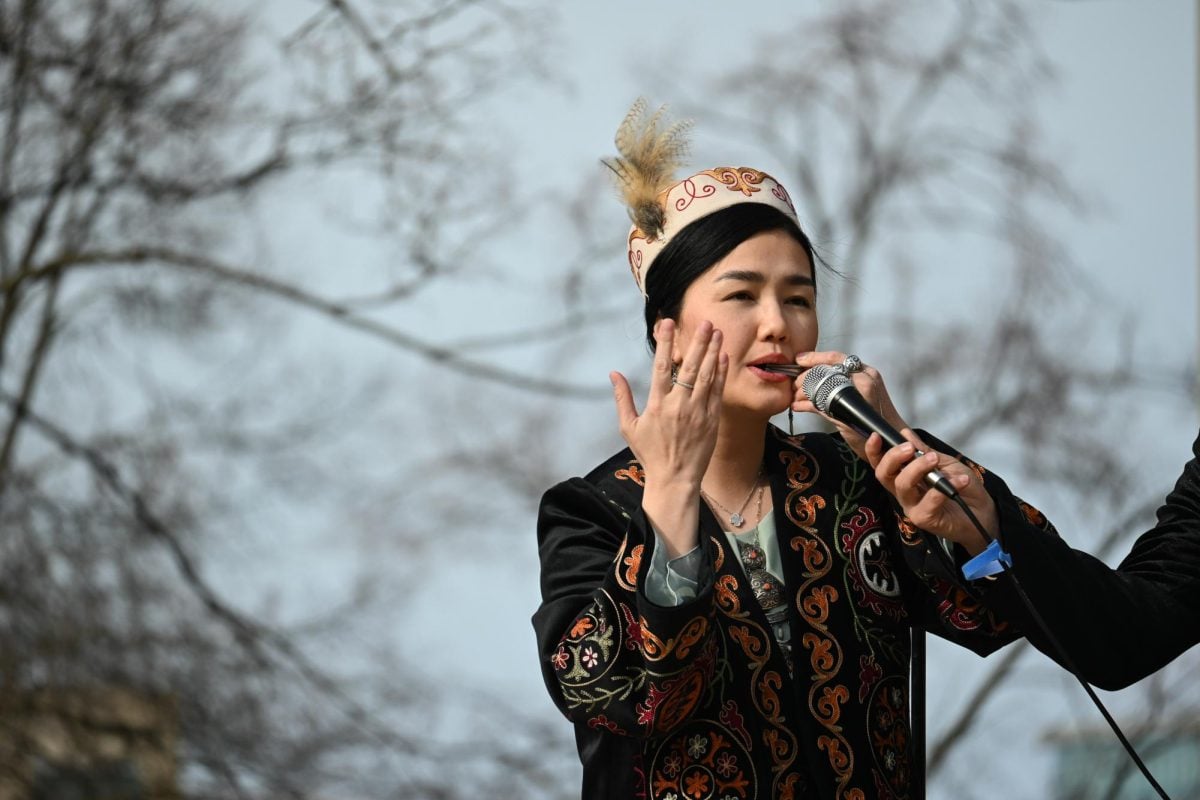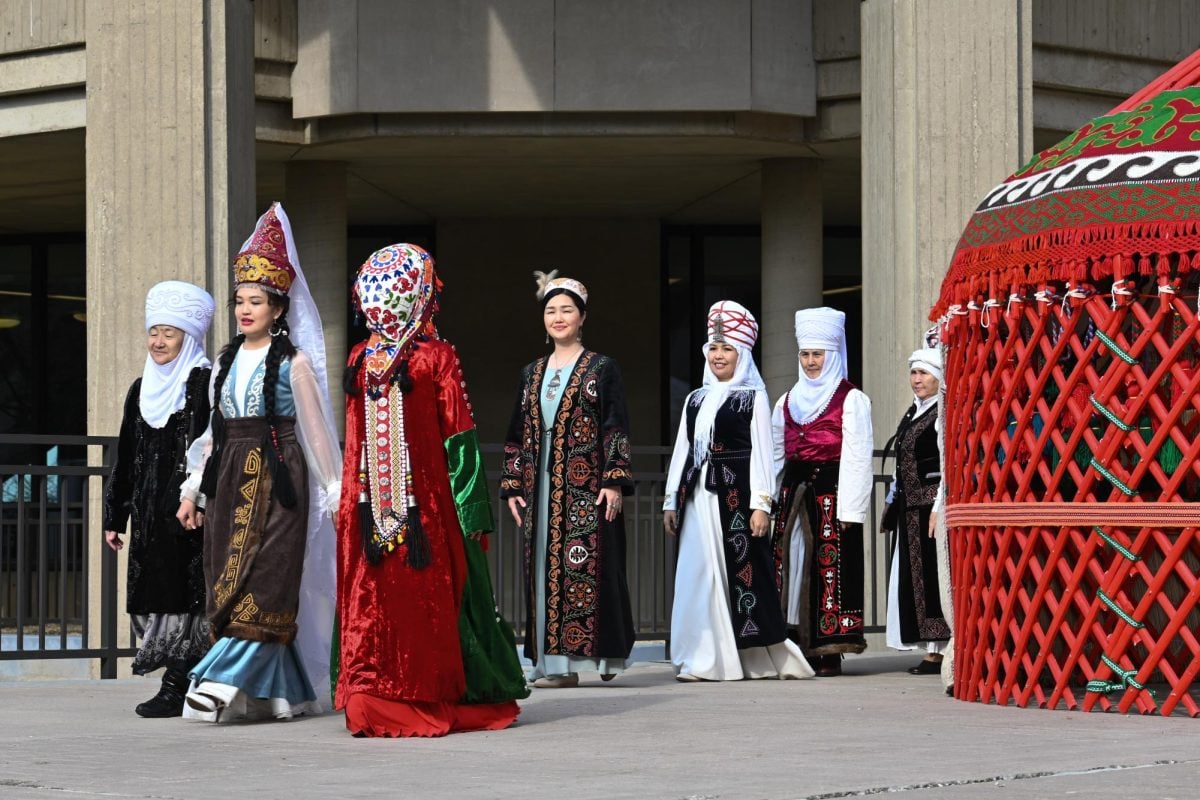The Northwestern community hosted the Kyrgyz Community Center Friday to celebrate Nowruz, the Persian and Turkic New Year, with musical performances, cultural clothing and Kyrgyz food.
The Kyrgyz Community Center brought a traditional yurt to the Main Library Plaza from their Arlington Heights location, as well as two dance groups, musical performances with the traditional instruments komuz and temir komuz, and a display of various traditional Kyrgyz clothing.
A variety of countries in and near Central Asia celebrate Nowruz, including Iran, Kazakhstan, Turkey, Afghanistan, Kyrgyzstan and Tajikistan.
The Nowruz celebration is part of a larger series called “Reimagining Slavic: Art, Culture, and Performance in Soviet and Post-Soviet Central Asia.”
Co-organizer and third-year Slavic languages and literatures graduate student Adam Laten Willson said Nowruz is an opportunity to host a unique event at NU while connecting with the local Central Asian community.
The series is co-sponsored by the Department of Slavic Languages and Literatures, the Nicholas D. Chabraja Center for Historical Studies, the Asian Languages and Cultures Department, the Buffett Institute for Global Affairs, the Department of Art History, and the Russian, Eurasian, and East European Studies Research Program.
Nowruz is about gathering people for picnics and making food for them, as well as the performances at Friday’s event, Kyrgyz Community Center President Nurdin Mamatzhan said.
Mamatzhan and Willson highlighted sumalak, a Central Asian dish only made during the new year. Willson said sumalak is made of germinated wheat that requires hours or days of continuous stirring.
Jibek Jolu, a Kyrgyz restaurant in Chicago, provided sumalak and borsook, a fried dough, chalap, a yogurt-based drink and maksym, a grain-based drink, at the event.
Chicago is home to a large Kyrgyz community of over 50,000 people, according to Mamatzhan. The Kyrgyz Community Center was established in 2016 and focuses on teaching American-born children about their culture.
“They were born here,” Mamatzhan said. “They are getting raised in the United States, and we want them to learn about our culture and language.”
Nowruz, “new day” in Persian, is also celebrated as the Persian New Year, according to first-year Slavic languages and literatures graduate student Bita Takrimi.
Takrimi also talked about Haft-sin, which she said is the most important part of Persian culture and new year celebrations. Haft-sin translates to the Seven S’s in English, where each “S” is a symbol, like an apple representing health and vinegar representing age.
This Thursday, the “Reimagining Slavic” series will feature a talk about Mongolian art post-empire, and, later in the quarter, a film screening of the Turkmen movie “The Contest.”
Willson said Nowruz is the cultural celebration of the series, which focuses on decolonizing Slavic studies. As a whole, he said decolonizing academia should focus on what decolonization means to the people affected.
“Coloniality is a central dimension of life in Eurasia,” Willson said. “It’s just a fact of history.”
Willson’s co-organizer, art history professor Adrienn Kácsor, said both she and Willson have been passionate about visibility for Central Asian countries within Slavic studies, especially since Russia’s invasion of Ukraine that began in 2022.
“Now there’s a moment finally (for) a very, very overdue attempt to start realizing that, for instance, Soviet culture is not just about Russia, just as Slavic culture is not just about Russian language and literature,” Kácsor said.
Correction: A previous version of this story incorrectly referred to Adrienn Kácsor. The Daily regrets the error.
Clarification: This story has been updated to better reflect the sponsors of the event.
Email: kaavyabutaney2026@u.northwestern.edu
Twitter: @kaavya_butaney
Related Stories:
— Asian American Studies Program senior symposium spotlights student projects
— Students gather for vigil two years after Russian invasion of Ukraine
— Johan Elverskog discusses the Uyghurs gradual transition to Buddhism over 1000 years ago








